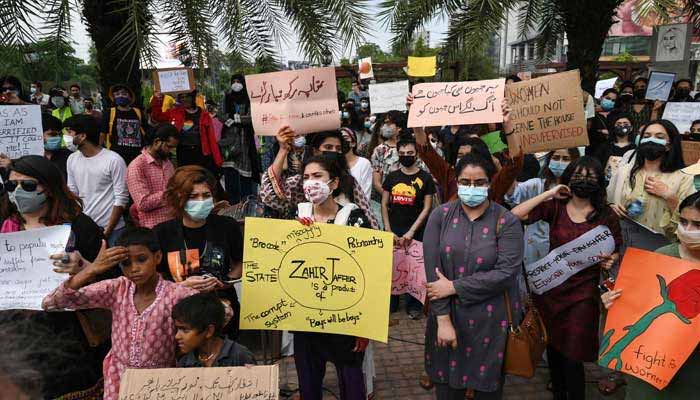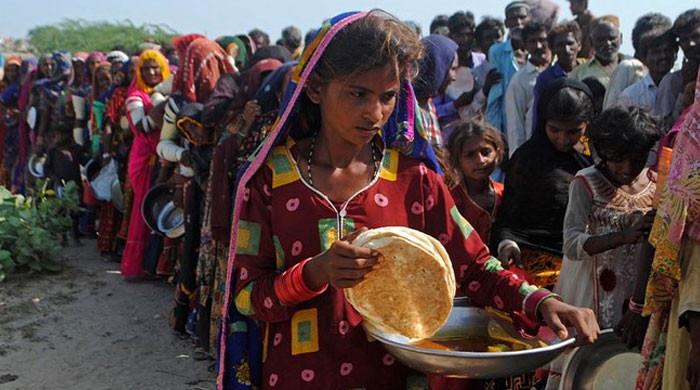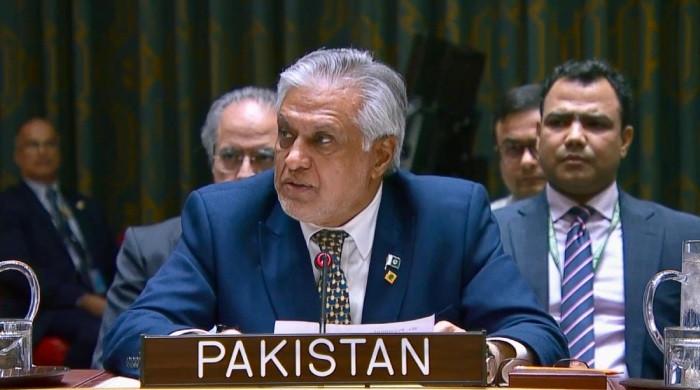NCSW condemns Justice Baqar's 'misogynistic remarks' in Noor Mukadam case
Commission says Justice Najafi’s comments promote victim-blaming and undermine judicial responsibility
November 28, 2025

- Commission warns remarks damage public trust and accountability.
- Says judiciary must avoid gendered stereotypes in judgments.
- Urges courts to treat survivors with dignity and respect.
The National Commission on the Status of Women (NCSW) on Friday condemned the "misogynistic and irresponsible" remarks made by Justice Ali Baqar Najafi in his additional note in the Noor Mukadam murder case, saying that his comments amounted to clear victim-blaming and reflected a harmful mindset within the judiciary.
Justice Najafi — now serving on the Federal Constitutional Court — had issued an additional seven-page note alongside the Supreme Court decision dismissing the appeal of Zahir Jaffer against his death sentence.
In that note, he urged Pakistan’s youth to recognise the "horrible consequences" highlighted by the case, calling it a tragedy that should push social reformers to address what he described as rising societal vices.
Linking the case to an "increasing trend of unmarried cohabitation," which he labelled a vice gaining ground among the upper class, the judge described what he termed a "living relationship" as a practice that violated state law and Islamic injunctions, amounting to "a direct revolt against Almighty Allah".
Justice Najafi wrote that society must reflect on its moral responsibilities and that the state should play a more active role in educating young people about cohabitation, drug abuse and related risks.
In its statement, however, the NCSW said such views shift responsibility away from perpetrators of violence and place unjustified blame on women. "No woman’s choices, real or perceived, can ever justify or explain brutality, murder or any form of gender-based violence," the commission stated.
The NCSW also noted that the judge’s remarks run contrary to the judicial guidance laid down by Justice Ayesha Malik in her landmark judgment, which emphasised that victims must be described in language that is sensitive, respectful and free from personal bias.
Her ruling, the commission added, called on the judiciary to avoid moralising, stereotyping and narratives that shame or blame women.
"These comments disregard that judicial responsibility and risk undermining public trust," the NCSW said, urging members of the judiciary to uphold constitutional values, maintain impartiality and ensure that courts remain spaces where survivors are treated with dignity and respect. The commission stressed that justice must be rooted in facts and law, not personal judgment or bias.
Jaffer had been convicted by an Islamabad trial court in 2022 and handed the death sentence, which the Supreme Court upheld. On May 20 this year, the bench headed by Justice Muhammad Hashim Khan Kakar had rejected Jaffer’s appeal. The court upheld his death sentence for murder but converted the death penalty awarded under rape charges into life imprisonment.
The case
Noor, 27, was found dead at a private residence in Sector F-7/4, Islamabad, in July 2021. Zahir Jaffer, the primary suspect, was taken into custody at the crime scene and an FIR was filed by the victim’s father later the same day.
According to the original FIR, Noor’s father reported that she had been “beheaded after being killed with a sharp weapon” in a gruesome act that shocked the nation.
In February 2022, a district and sessions court sentenced Jaffer to death, alongside a 25-year prison term with hard labour and a fine of Rs200,000, concluding the trial that continued for over four months.
Besides the prime accused, two members of his domestic staff, Iftikhar and Jameel, were each handed 10-year prison sentences, while other co-accused — including Jaffer’s parents and several TherapyWorks employees — were acquitted.
In March 2023, the Islamabad High Court upheld Jaffer’s death sentence and upgraded his 25-year sentence to an additional death penalty, on the appeals filed against the punishment awarded to the convicts.
An appeal challenging the IHC verdict was subsequently filed in the Supreme Court in April last year.
In May 2025, the SC upheld the death sentence of Zahir for the murder of Noor.











